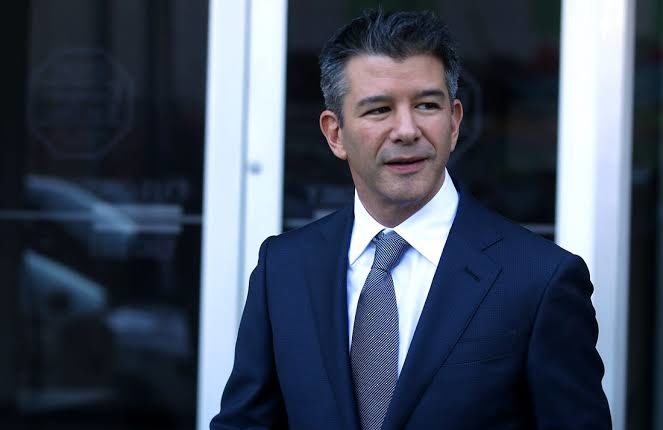It seems that ride-sharing giant Uber, which is worth billions today, has built its empire by bending several rules, using what seems to be ethically dubious tactics, and lobbying governments and individuals. It essentially controlled the narrative – whatever happened, Uber would do its best to emerge as the winner.
A trove of confidential files, obtained by The Guardian and shared with the International Consortium of Investigative Journalists (ICIJ), pulls back the curtains on how Uber has reached its current position in the market. Dubbed the “Uber Files,” this leaked cache consists of over 124,000 documents and begins nearly a decade ago.
Spanning from 2013 to 2017 (the period which saw Uber evolve from a fledgling startup to a titan that shows no regard for laws and rules whatsoever), the Uber Files contains emails, iMessages, and WhatsApp exchanges between Uber’s most senior executives (especially from co-founder and former CEO Travis Kalanick). The cache also includes memos, presentations, notebooks, briefing papers and invoices, none of which show evidence to have been tampered with.
The files highlight how Uber has positioned itself to be a $43 billion company that is one of the biggest names in the ride-sharing sector. Some of the tactics employed by the California-headquartered company to aggressively expand in existing and new markets include lobbying governments to support its expansion, and courting prime ministers and presidents to help it circumvent laws.
Additionally, it exploited its drivers, disrupted the taxi and cab markets to bring about a gig economy (which would profit it and others like it), and even implemented a “kill switch” so that authorities are unable to successfully investigate its business practices.
If this is not enough, the Uber Files found that the company paid prominent academics hundreds of thousands of dollars so that they produces research that supported the company’s claims about the benefits of its economic model.
Uber and politicians
One of Uber’s relationships with politicians includes the one it has with French president Emmanuel Macron. Their relationship dates back years, when Macron, during his early days as the Minister of the Economy, Industry, and Digital Affairs, found that Uber, with its campaign to disrupt the French taxi market, presented a golden opportunity to bring in the big bucks and create hundreds of much-needed jobs in the market.
The investigation has found that Macron, who is on a first-name basis with Uber co-founder Kalanick, told him that he would be reforming laws in Uber’s favour. It came at a time when French taxi drivers would stage violent protests in the streets against Uber. The documents also found Neelie Kroes, former vice-president of the European Commission, helping Uber to lobby several top Dutch politicians, including the PM.
Apart from Macron, the documents showed that Uber execs also met with US president Joe Biden at Davos, Irish PM Enda Kenny, Israeli prime minister, Benjamin Netanyahu, and former chancellor of the Exchequer George Osborne. Osborne was portrayed to be a “strong advocate” with his policy of supporting global tech firms and persuading them to invest in Britain.
Uber and laws
Rubbing shoulders with so many high-profile names have clearly helped Uber blatantly flout laws, relaxing labor and taxi laws or having governments alter them (so that their operations are not deemed illegal), and find loopholes to evade regulatory attention. The documents also revealed that Uber channeled money through Bermuda and other channels and garnered public sympathy by portraying violence against its drivers.
When it came to responding to public backlash, Uber resolved to spend $90m in 2016 on lobbying and public relations. The documents showed that in the same year, Kalanick messaged other company leaders, “Violence guarantee(s) success” while demonstrations in Paris continued against Uber.
Uber and taxi drivers
To say that Uber brute-forced its way into markets and lobbied governments and politicians to look the other way or make things easy for it would not be wrong. After all, the documents have revealed that Uber has not refrained from resorting to “alternate” routes to power to deliver profitable growth and drive expansion across the globe.
Uber’s taxi drivers were among those who paid the price. For one, they were encouraged to be portrayed as victims of violence and get their 15 minutes of fame to obtain concessions (especially in European countries including Belgium, the Netherlands, Spain, and Italy). When drivers across Europe were truly attacked, Uber seized the moment to seek regulatory and public support.
This was disputed by Kalanick, whose spokesperson denied the findings as a “false agenda” and said that he “never suggested that Uber should take advantage of violence at the expense of driver safety.”
Subsidized drivers and discounted fares became a rather common tactic employed by the behemoth.
Kill switch
Kill switch is a concept that one can see in Hollywood movies. Uber has applied the concept in the real world, along with “stealth technology,” to evade regulatory probes. During raids in its offices across countries, company execs would instruct the IT staff to deploy the kill switch to cut off access to the company’s main data systems, denying authorities from gathering evidence. This has happened in at least six countries, including India.
“Please hit the kill switch ASAP,” Kalanick wrote in an email to an employee. “Access must be shut down in AMS (Amsterdam).”
Speaking of India, this happened in 2015, when a woman passenger was raped in an Uber cab by its driver in New Delhi. That resulted in a ban on its services, causing a “worst-case scenario” for Uber. The company played a “blame game” as it scrambled to restore and preserve its reputation and blamed local officials for not thoroughly checking the backgrounds of the drivers. Uber’s Asia head at that time, Allen Penn, also urged managers to focus on driving growth and to “embrace the chaos,” which meant that they were doing “something meaningful.”
Uber’s answer
Jill Hazelbaker, Uber’s senior VP of public affairs, said “We have not and will not make excuses for past behavior that is clearly not in line with our present values. Instead, we ask the public to judge us by what we’ve done over the last five years and what we will do in the years to come.”
Another statement by the company added that it had “moved from an era of confrontation to one of collaboration.” Kalanick’s spokesperson defended him, saying that the former Uber exec “did not create, direct or oversee these systems set up by legal and compliance departments and has never been charged in any jurisdiction for obstruction of justice or any related offense.”





